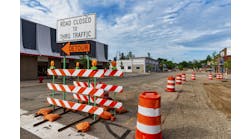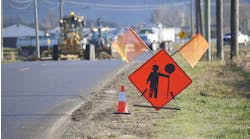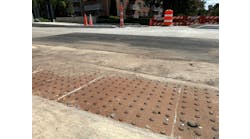Boston’s transit riders may be facing substantial fare hikes as well as service reductions under a proposal made Tuesday by the Massachusetts Bay Transportation Authority (MBTA) in an attempt to close a projected $161 million budget gap, the Boston Globe reported.
After five years of steady fares, the MBTA proposed two scenarios at a finance committee meeting, and both involved riders paying more.
Under one scenario, a bus ride could jump from $1.25 to $1.75 while a subway ride could jump from $1.70 to $2.40 for passengers holding automated fare cards, called CharlieCards.
Under a second scenario, fares would go up a slightly more modest 35%––$1.50 for a bus ride and $2.25 for subway––but service cuts would be more extensive.
"Neither choice is appealing to the MBTA, and we know it won't be appealing to our riders," said Charles Planck, senior director of strategic initiatives for the agency, in outlining the options to the panel.
Both plans would eliminate commuter rail service on weekends, and ferry service in Boston Harbor altogether.
Officials said they planned to hold 20 public hearings in the coming months before announcing any final decisions. Massachusetts Secretary of Transportation Richard Davey suggested to reporters at a briefing that the final outcome could be a combination of the two scenarios and said officials were still open to considering other proposals, such as off-peak fares that encourage riders to use the T outside of rush hour.
He acknowledged that riders would be negatively affected by the proposals.
Under the proposal calling for a 43% fare hike, the T would eliminate 26% of existing bus route miles, but by focusing on routes with low ridership, Planck said 98% of current bus riders would retain their current service.
Under the plan calling for the lower 35% fare hike, the impact on bus routes would be more dramatic––eliminating 78% of current mileage while protecting 76 percent of current passengers.
Both plans would also impact seniors and students who enjoy discounts on MBTA service. Those discounts would go from the current 33% to 50% of base fares.
Parking costs at MBTA stations could increase 20 to 28% under the plans.
Prices for the RIDE, a service for disabled passengers, would increase from the current $2 to $3 under one scenario and to $4.50 for the other. Some users of the RIDE who live outside the greater Boston area would have to pay as much as $12 for the service under one of the proposals.
Davey and MBTA officials said they would continue to look for additional cost savings but added that it was unlikely the T could expect any additional funding from the Legislature given the state's overall fiscal situation. He also ruled out refinancing the T's $5.5 billion in debt, a tactic used to stave off fare hikes in the past.


